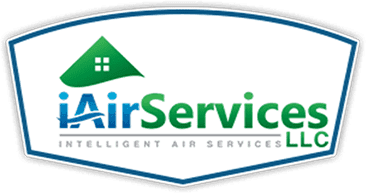Indoor Air Quality & Respiratory Health
As an HVAC company dedicated to providing top-notch services in Austin, TX, Intelligent Air Services, LLC (iAir) understands the importance of maintaining excellent indoor air quality (IAQ) for the well-being of our customers.
In this comprehensive guide, we will share practical tips and insights to help you improve your respiratory health by addressing common IAQ issues.
UNDERSTANDING THE IMPACT OF INDOOR AIR QUALITY
Before diving into specific tips, it’s crucial to understand the impact of IAQ on your respiratory health. Poor indoor air quality can lead to various respiratory issues, including allergies, asthma, and even more severe conditions. By taking proactive measures, you can significantly reduce the risk of these health problems.
IDENTIFYING COMMON INDOOR AIR POLLUTANTS
Many indoor air pollutants can negatively affect your respiratory health. Some of the most common ones include:
- Dust and dust mites
- Pollen and other allergens
- Mold and mildew
- Volatile organic compounds (VOCs) from cleaning products and furniture
- Tobacco smoke
Understanding these pollutants will help you address them effectively.
PROPER VENTILATION AND AIR CIRCULATION
One of the most critical factors in maintaining good IAQ is ensuring proper ventilation and air circulation throughout your home. Here’s what you can do:
- Open windows regularly to let fresh air in.
- Install exhaust fans in kitchens and bathrooms to remove excess moisture and odors.
- Regularly clean and maintain your HVAC system to ensure optimal airflow.
By improving ventilation, you can reduce the concentration of indoor air pollutants.
EFFECTIVE FILTRATION SYSTEMS
Investing in high-quality air filters is essential for improving IAQ and protecting your respiratory health. Consider the following:
- Choose filters with a high MERV (Minimum Efficiency Reporting Value) rating to capture smaller particles.
- Regularly clean or replace filters according to the manufacturer’s instructions.
- Consider upgrading to HEPA (High-Efficiency Particulate Air) filters for maximum filtration.
A well-maintained filtration system can significantly reduce the presence of allergens and other harmful particles in your indoor air.
Controlling Humidity Levels
Excess humidity can create a breeding ground for mold, mildew, and dust mites, leading to respiratory issues. Follow these tips to control humidity:
- Use dehumidifiers in damp areas, such as basements or bathrooms.
- Fix any water leaks promptly.
- Ensure proper ventilation in areas prone to moisture buildup.
By maintaining optimal humidity levels, you can prevent the growth of harmful allergens.
Improving your indoor air quality is a crucial step towards protecting your respiratory health. At Intelligent Air Services, LLC (iAir), we specialize in providing comprehensive HVAC solutions tailored to your specific needs.
Contact us today to learn more about our Indoor Air Quality services.
